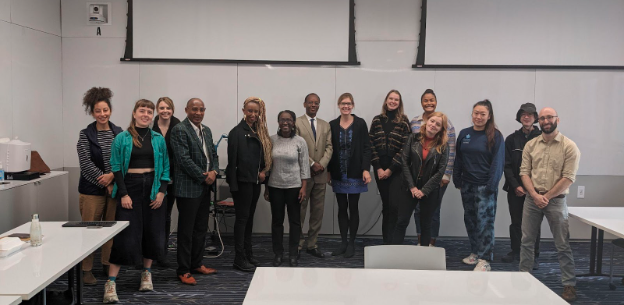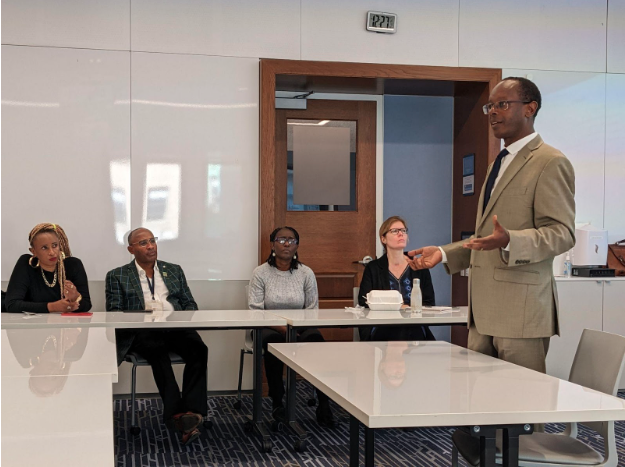On Wednesday November 3, 2022, Dr. Jean Damascene-Gasanabo, the director general of research and documentation for the Rwandan National Commission for the Fight against Genocide (CNLG) from 2012-2021, visited TC, invited by the Center for African Education (CAE) for a “lunch and learn” event. He spoke to TC students, faculty, and community members over a meal provided by Makina Cafe about his time with CNLG and his work to research and document the Rwandan genocide against the Tutsi and educate others about the genocide to prevent genocide in the future.
Gasanabo talked at length about the research and documentation undertaken by CNLG after the Rwanda Genocide including reserach into genocide denial and ideology, genocide prevention, and the consequences of the genocide. This includes the preservation of Gacaca documents. Gacaca means “justice amongst the grass” and refers to the 12,000 Gacaca courts, modeled after traditional tribunals used for civil disputes in pre-colonial Rwanda, that were established across Rwanda in 2002 to clear the backlog of cases related to the genocide. Dr. Gasanabo shared that 10 years later, all the documentation collected from these Gacaca court cases were enough to fill 20,443 boxes. In addition, Dr. Gasanabo spoke in detail about his work safeguarding artifacts of the genocide and the significance of maintaining memorial sites.

He stressed to his audience the importance of research and preservation because of the alarming prevalence of genocide denial in Rwanda and abroad. The loss of physical evidence can threaten remembrance and commemoration. Educating others and preserving the history of the genocide are necessary measures to discourage the spread of genocide denial and genocidal ideology. At the end of Dr. Gasanabo’s presentation, students, faculty, and community members engaged Dr. Gasanabo in a dialogue about his work, discouraging genocide denial, and the wide-reaching effects of the genocide in Rwanda and around the world.
